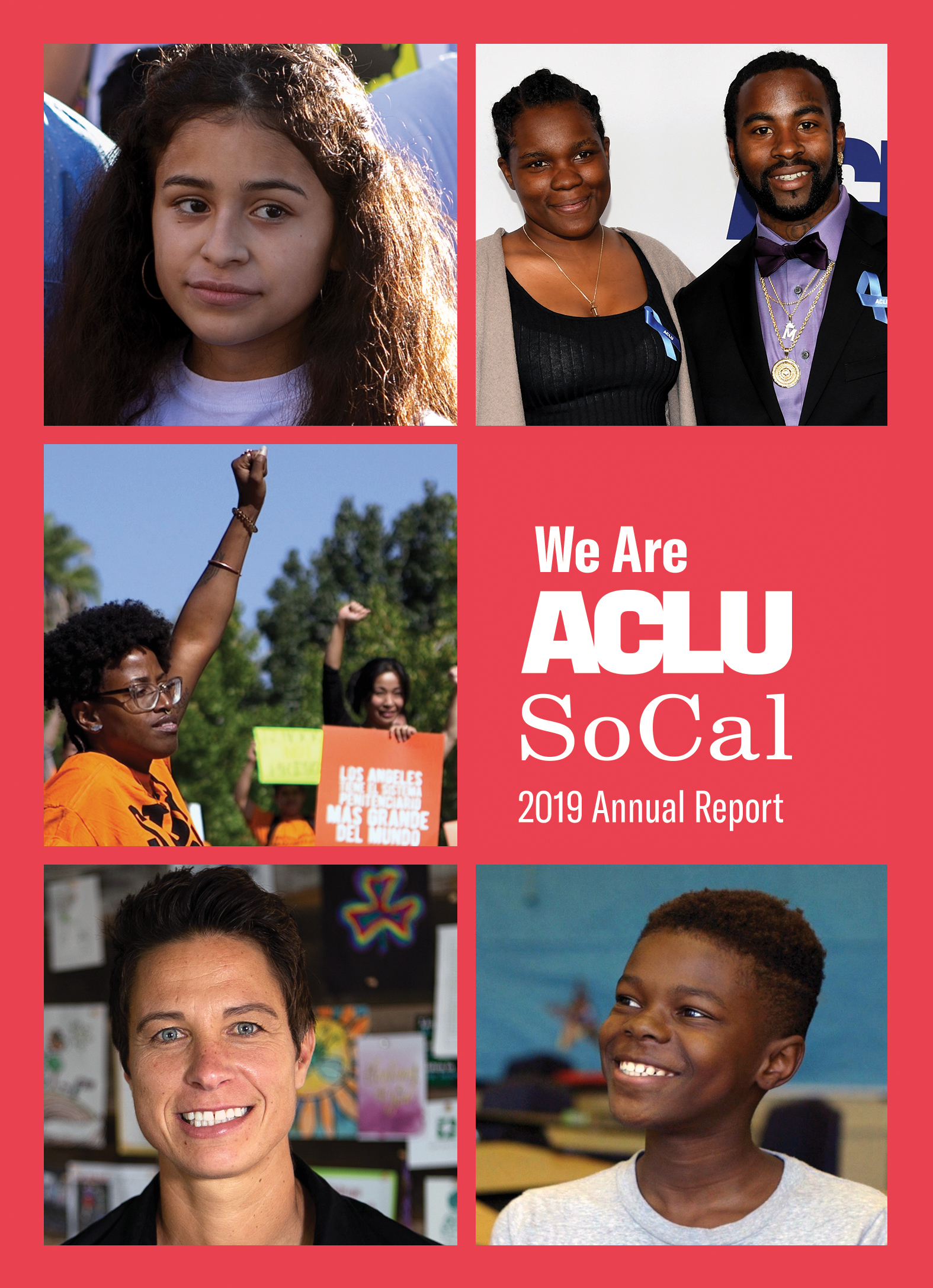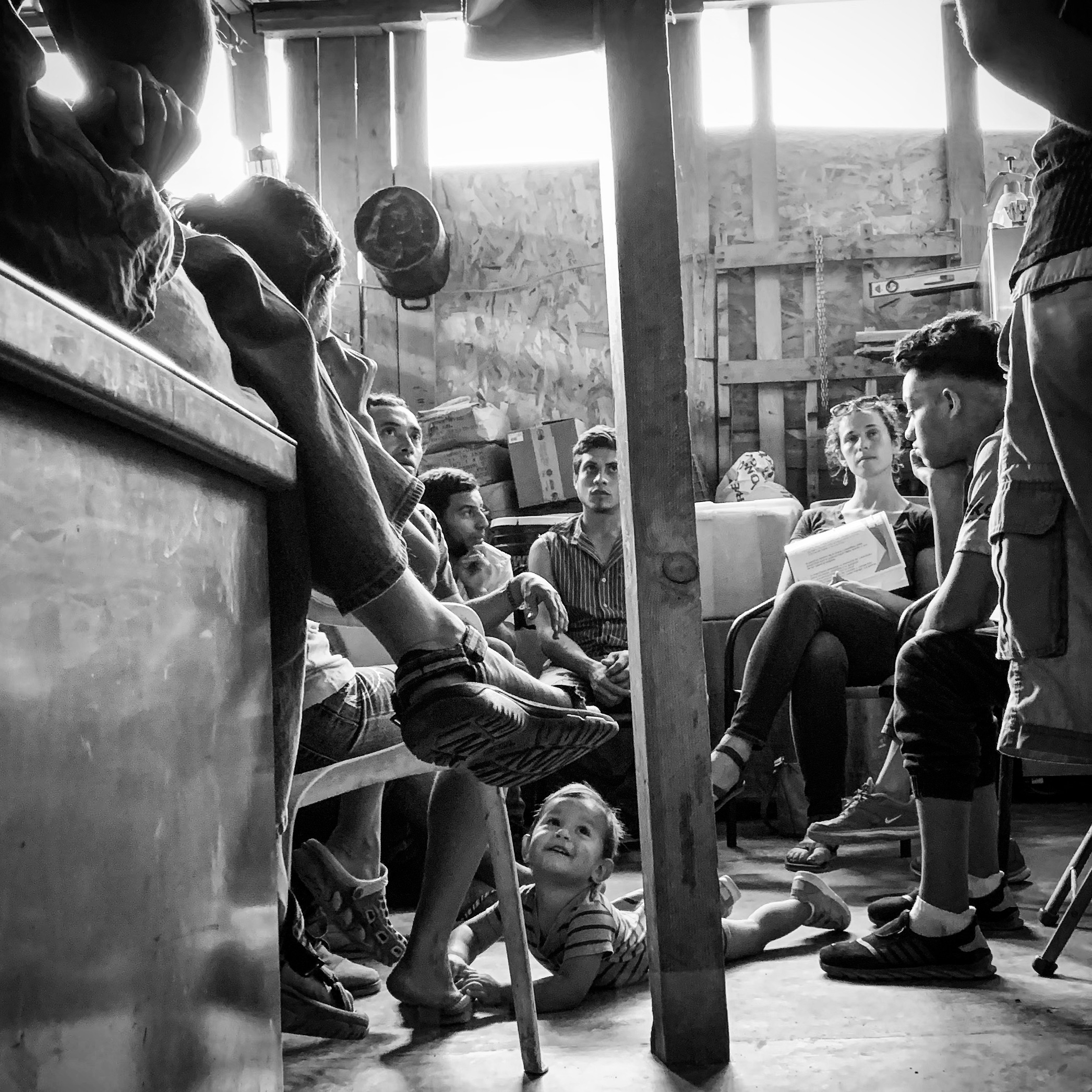The ACLU has Sued on Behalf of an Unlawfully Arrested Human Rights Worker
Ana Adlerstein, a volunteer human rights worker at the United States/Mexico border, was suddenly arrested and jailed while accompanying an asylum seeker across the border at the Lukeville Port of Entry in Arizona. It was a bogus, unlawful arrest — Adlerstein was never charged with a crime, and after several hours she was let go.
Adlerstein is now a plaintiff in a lawsuit filed by the ACLU Foundation of Southern California, the ACLU Foundation of Arizona, and the law firm Kirkland & Ellis, challenging the federal government's surveillance and arrests of activists at the border. At the time of her arrest, she was carrying a letter from an ACLU attorney asserting her right to cross the border, a precaution she had taken due to increasing intimidation from the authorities, but the officer tossed it away.
The following is a conversation between Adlerstein and Erin Kilbride, who works with Frontline Defenders, a global organization that seeks to protect human rights defenders. On May 5, Kilbride traveled to Sonoyta, Mexico on to serve as the security contact for Adlerstein in case she or the asylum seeker met any trouble.
Adlerstein's intention on May 5 was to simply observe the asylum seeker whom we are calling Renee, present their claim, a process that should take a few minutes. Kilbride ended up waiting for four hours at an Oxxo convenience store on the Mexico side of the border before Adlerstein finally emerged.
Ana: I will never forget the moment that I walked out of the Lukeville Port of Entry and saw you still sitting inside of that Oxxo!
Erin: Me neither!
Ana: I am so grateful that you were there.
Erin: One of the things that's interesting in your case is that despite what happened that night, Renee was able to present his asylum claim. That goes to show that everything that happened to you was entirely an act of retaliation. It was not about them trying to stop our friend from seeking asylum. It was about retaliation towards the American citizen who was attempting to help him do so, and an indicator of their fear of solidarity across citizenship lines.
The way Customs and Border Protection responded to that letter that you had from the ACLU with utter contempt indicates that it was not making you any safer. If anything, it was raising that officer's very — it sounded like very masculine — reactiveness. They were angry at you because you were attempting to deploy your privilege in a certain way.
Ana: Let's talk through the experience of that day.
Erin: I came across the border on foot and met you both at the Oxxo. We had a bit of an opportunity to do some kind of very, very quick baseline security-esque planning, which I'm very glad we did. "What are you going in with? Are you carrying the keys? The phone? Your passport? Does your mom know what you do?" All of that kind of stuff. "Is Ana your real name?" [Laughter].
Erin: And then it was time for you guys to go. I remember making sure Renee he had enough water, and like, "God, I wish everybody was wearing more socks than they currently have on."
Ana: Yeah, we didn't even think about me wearing socks.
Erin: So, you guys left. It was at about the hour mark that I let a colleague from Frontline know that I hadn't heard from you. And then a half hour after that Mohammed Tajsar from the ACLU and I started calling back and forth.
Ana: When different officers would come into the cell where I was held, I would look at their watches. After it had been two hours, I just remember how comforting it was to know that our emergency plan had kicked in.
Erin: I was very certain that you had been detained. It truly did not occur to me that you could have been arrested. It didn't occur to any of us that they would have actually used the "a" word.
Ana: I don't think anyone had been arrested accompanying an asylum-seeker up to that point. I don't know if anyone's been after. Have they been?
Erin: Not that I know of.
It was very concerning to me that there aren't that many staff in there at night, and that the majority of them are men. There was a very real element of there being a woman activist, accompanying somebody who is a member of numerous vulnerable groups. It was a lot of layers of gender and sexuality and physicality and militarization that was intersecting there, especially as it started getting dark.
As had been the nature of many other experiences that I've had in this work, the people that I was liaising with at that moment were all men. That is usually how it works when you're dealing with people who are either lawyers or security experts, and their brains don't automatically go to the same places that yours would have, or that mine did. It started to get really sickening.
Ana: Wow. I didn't realize that was how you were thinking.
One of the reasons I was so sure that you wouldn't still be in that Oxxo when I came out was because it was dark, and it was in a dusty border town. And you don't speak Spanish. I was sure you wouldn't be there for your own safety. But I was totally relieved that you were!
Erin: It had never entered my head that you were concerned about me.
Ana: I was.
I want to share one quick story about what happened later, about Renee, who was held in detention after he made his application, and get your take on it. I don't think I've shared this with you because I don't think we've really talked since then, have we?
Erin: Not as much as we should have.
Ana: So after Renee he was in detention for about a month, I went to Eloy Detention Center.
I went into the visiting room, and Renee gave me a huge hug, and we sat down at a table because you know, you have to sit across from each other. The first thing out of his mouth was, "I was so worried about you."
Whereas I was sitting in my cell being confused and scared, but then comforted each time I'd hear someone say something through the thick door in a tone was caring towards Renee, I never considered that Renee was hearing me through his side of the wall too. I wasn't supposed to still be there.
So I don't know what exactly to make of that. Eloy is a horrible prison, and he had been there for over a month at that point, and I was held for four hours... How do you hear that story?
Erin: Well, I think it speaks to how solidarity is not a one-way street. If it was, it would be called charity.
We don't stand in solidarity with people who are sitting. We stand in solidarity with people who are standing, who are fighting, who are walking, who are migrating, and resisting. You can't unmake someone an activist, and you can't decide that someone no longer has agency to stand in solidarity with someone else. There was nothing that, apparently, could be done to Renee to make him not be concerned about you in that moment.
I think the fear that a lot of officials have of migrant rights defense work is that it's overflowing with solidarity. These little acts of solidarity that are happening in the desert, or on boats in the Mediterranean, or in detention and ports of entry are more common than we know. And they're beautiful. Thank you for sharing that story with me.
Ana: Erin, I feel so lucky to have had this time with you. Thank you so much.
The fear officials have of migrant rights defense work is that it's overflowing with solidarity.
Adlerstein v. U.S. Customs and Border Protection
ACLU Files Lawsuit on Behalf of Humanitarian Activists Targeted by Trump Officials

